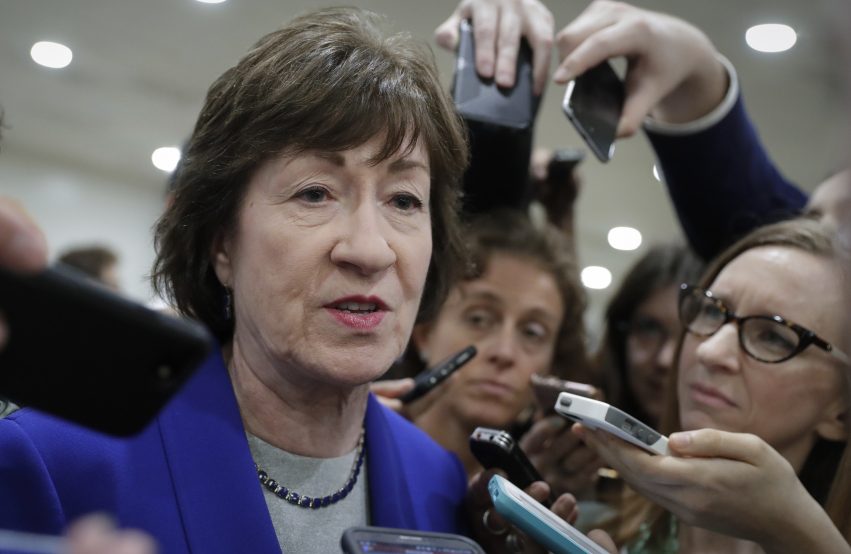Sen. Susan Collins says she will spend the next few days carefully reviewing the new Affordable Care Act repeal proposal, taking a hard look at an upcoming analysis by the Congressional Budget Office and considering what she has learned from her conversations with constituents in Maine.
We admire her diligence, but we think Collins already has enough information to know what she should do. This bill would be bad for Maine and bad for America, and the senator should speak out against it as forcefully as possible.
Collins’ voice has never been more important. Because of the way parliamentary rules are being applied, the 52 Republicans in the Senate are the only ones who get to make a meaningful impact in this debate. If only three Republican senators refuse to sign on, the bill will have to be renegotiated. Just hours after details of the bill were revealed, four hard-right senators said they might scuttle it if the cuts to health care aren’t even deeper than proposed.
They will frame the debate unless someone in the Senate Republican caucus speaks up for people with disabilities, people in nursing homes, the self-employed and those with chronic diseases whose access to health coverage is at risk.
Collins has taken a series of small but important steps that have helped guide the process in a positive direction, starting with her 2015 vote against an Obamacare repeal bill because it called for the defunding of Planned Parenthood.
The vote was largely symbolic, because that measure was destined for a certain veto by then-President Obama, but Collins left a marker for her colleagues, telling them where she would not go.
She has left other markers this year, including issuing a list of critical questions after the House Republicans passed their version of Obamacare repeal, which is projected to make 23 million people lose their coverage.
The most dangerous part of both the House and Senate bills is not what they do to the Obamacare reforms to insurance markets, but the way they would fundementally gut Medicaid, which has been a federal and state partnership for more than 50 years.
Both bills would cap federal Medicaid contributions on a per-patient basis. As medical costs increase, the federal government’s share would shrink.
About 265,000 people in Maine are on Medicaid (known here as MaineCare), with three-quarters of the care going to people who are elderly, disabled or are children. A per-patient cap would suck billions out of the Maine economy, and put lives at risk. Reducing federal support for these people would guarantee agonizing decisions for state officials in the future.
Collins is no fan of the status quo, and she and others have identified real problems with Obamacare that should be addressed. The plans offered on the exchanges are too expensive for many, and the premiums and out-of-pocket costs have increased dramatically in a short time. The abrupt cutoff for subsidies creates a penalty for people who have had a good year in business or get a promotion.
There are parts of the country where there is no competition between insurance companies to drive down prices, and there are even places where there may be no willing insurance providers at all next year.
But the Senate Republican bill would not fix any of those problems; in fact, it would make them all worse.
Defeating this bill now – and defeating it for the right reasons – would force senators to start over and work to find ways to cut costs and improve access to health care. That’s the effort America needs, and we hope Collins will help lead it.
Copy the Story LinkSend questions/comments to the editors.



Success. Please wait for the page to reload. If the page does not reload within 5 seconds, please refresh the page.
Enter your email and password to access comments.
Hi, to comment on stories you must . This profile is in addition to your subscription and website login.
Already have a commenting profile? .
Invalid username/password.
Please check your email to confirm and complete your registration.
Only subscribers are eligible to post comments. Please subscribe or login first for digital access. Here’s why.
Use the form below to reset your password. When you've submitted your account email, we will send an email with a reset code.